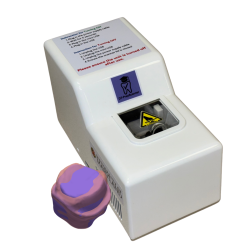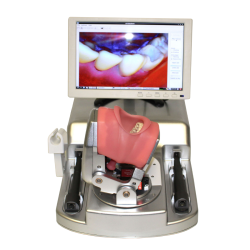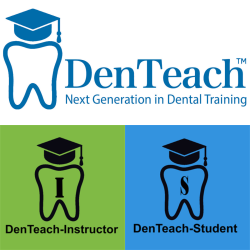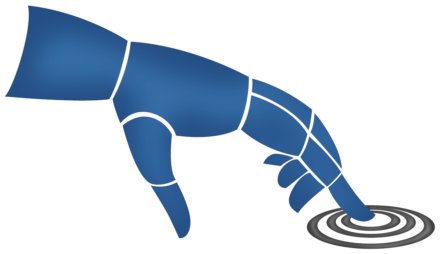Announcement
One platform to build skills, track progress, and prepare confidently for dental licensure exams, including ADEX, NDEB/NDECC, and international board requirements.
Objective 3D Prep Evaluation

Robotic scanning & AI scoring for precise, repeatable prep assessment. Helps students identify, correct, and master clinically acceptable preparations.
Guided Skill Development Training

Hands-on preclinical simulation with structured learning flow. Supports curriculum delivery, competency growth, and real-world procedural readiness.
Cloud-Based Independent Practice

Students practice, self-assess, and improve from anywhere. Enables flexible lab access and reduces faculty evaluation load through digital feedback tools.
A unified platform that bridges simulation, self-assessment, and objective evaluation for dental education and licensing preparation.
- Uses robotic scanning and structured laser metrology for micro-level accuracy
- Measures critical preparation metrics, including:
- Occlusal & axial reductions
- Taper/convergence angles
- Wall parallelism & surface uniformity
- Finish line clarity & continuity
- Detection of undercuts, over-reduction, and inadequate clearance
- Generates standardized numeric scoring aligned with exam rubrics
- Produces color, contour, and surface deviation overlays to highlight precise areas needing improvement
- Delivers consistent, bias-free grading, eliminating instructor subjectivity
- Supports 24/7 student self-assessment, reducing reliance on faculty review
- Supports preclinical, clinical prep, and bridging/IED training
- Works for both instructor-led sessions and self-directed practice
- Provides structured learning modules that follow curriculum objectives
- Students practice, evaluate, and refine their work iteratively
- Reduces chair-side teaching burden and repetitive correction
- Accessible on-campus or remotely through cloud-based solutions
- Tracks learner progress for performance monitoring and feedback
- Prepares students and IED applicants for competency and licensure exams
- Performs automated scoring based on defined evaluation metrics
- Benchmarks performance against instructor standards and cohort averages
- Identifies specific areas needing improvement for each student
- Generates individualized guidance for targeted skill refinement
- Tracks progress over time across multiple practice attempts
- Stores all scans and evaluations in a performance history timeline
- Supports competency-based advancement decisions
- Provides class-level analytics for curriculum insight and reporting
- Highlights patterns in common errors to guide instructional focus
- Enables data-driven remediation and exam readiness confirmation
See DenTeach & PrepScanner in Action
PrepScanner™: See your preparation exactly the way your examiner sees it, with objective measurements, precision surface mapping, and standardized scoring that highlights what needs improvement and why.
DenTeach™ Premium: Instructors demonstrate once, and students can then replay, practice, and refine independently at their own pace, while still receiving ongoing feedback from the instructor.
DenTeach™ Basic: A hands-on digital learning kit for dental hygiene students to practice, record, and refine their clinical skills anywhere, with faculty guidance and progress tracking built in.
Tactile Robotics: We design with empathy. Our solutions begin by listening to the real challenges faced by students, educators, and clinicians, and engineering technology that genuinely meets their needs.
News

Tactile Robotics has entered into a research collaboration agreement with TMU, aiming to advance innovations in robotics and healthcare technology.
Tactile Robotics enters into a University-Industry Research Collaboration agreement with Toronto Metropolitan University

Tactile Robotics is proud to announce a new collaboration with Toronto Metropolitan University, aimed at advancing Industry 4.0 and Internet of Things (IoT) technologies. This partnership will focus on further research and beta testing of Tactile Robotics’ innovative inventions, including DenTeach and iManus technologies.
Dr. Kourosh Zareinia, lead professor at the Department of Mechanical and Industrial Engineering, underscores the dual mission of improving health outcomes and addressing the economic challenges facing Canada’s healthcare system. Dr. Zareinia believes that robotics holds the key to reducing healthcare costs and enhancing care quality through the standardization of medical methods and treatments.
“We are excited to collaborate with Tactile Robotics on cutting-edge innovations that have the potential to transform healthcare,” says Dr. Zareinia.
For more information about Tactile Robotics and its technologies, visit www.tactilerobotics.ca.

Tactile Robotics has recently secured a grant from NRC-IRAP to boost their efforts in commercializing the DenTeach family with enhanced resources.
Tactile Robotics recently received a grant from NRC-IRAP to commercialize its products.

Tactile Robotics is pleased to announce that we have received a grant from NRC-IRAP to commercialize the DenTeach™ family. This sophisticated technology achieves high precision, haptic-enabled, instructor-oriented training, utilizing advanced hardware and software to enhance knowledge transfer from instructor to student.
“We are grateful to the National Research Council of Canada for their continued support,” said [Your Name], CEO of Tactile Robotics.
DenTeach™: A Novel Application of Digital Twins in Healthcare
In a recent publication in the Journal of Visual Worlds, Tactile Robotics explores the application of digital twins in the healthcare industry, focusing on the dental sector.
Abstract: Industries are increasingly adopting digital twins for their unprecedented ability to control physical entities and manage complex systems by integrating multiple technologies. However, the extent of digital twin adoption in the dental industry for remote education remains uncertain. This work employs a mixed-method approach to investigate the added value of digital twins for remote learning in dentistry, shedding light on concepts, benefits, and an application-based roadmap for wider adoption.
The paper reviews digital twins in healthcare, identifies use cases, compares them across disciplines, and outlines characteristics that add value to dental education. Inspired by applications in other fields, the study proposes a roadmap for digital twins in dental education, highlighting growing complexity and unique characteristics for remote learning.

